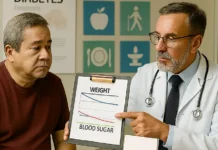Elderly people with dementia are three times more likely to have an injurious fall if they take antidepressants, according to research published in the British Journal of Clinical Pharmacology.
The association with falls can be seen in people who take low doses of selective serotonin reuptake inhibitors (SSRI) and the risk increases as people take higher doses, says the report. The UK Alzheimer’s Society is now calling for research into alternative treatments for depression that patients can be prescribed.
In a statement, the society commented, “Two thirds of care-home residents have dementia so it is worrying that a common antidepressant, SSRIs, is causing increased risk to people with the condition. More research is now needed to understand why this antidepressant is having this effect on people with dementia and if there is an alternative treatment for depression that they could be prescribed. One in three people over 65 will die with dementia yet research into the condition continues to be drastically underfunded. We must invest now.”
Lead author of the study Carolyn Shanty Sterke carried out her research by recording the daily drug use and daily falls in 248 nursing home residents with dementia from 1 January 2006 until 1 January 2008. The incident reports showed that 61% of the residents sustained 683 falls and 220 falls resulted in injury or death. The risk of having an injurious fall increased from an absolute daily risk of 0.09% for a female aged 80 not taking an SSRI, to 0.28% for a female aged 80 taking one defined daily dose of SSRI. Similar increases in absolute daily risk were found for both men and women, for different ages.
She said, “Staff in residential homes are always concerned about reducing the chance of people falling and I think we should consider developing new treatment protocols that take into account the increased risk of falling that occurs when you give people SSRIs.”



















